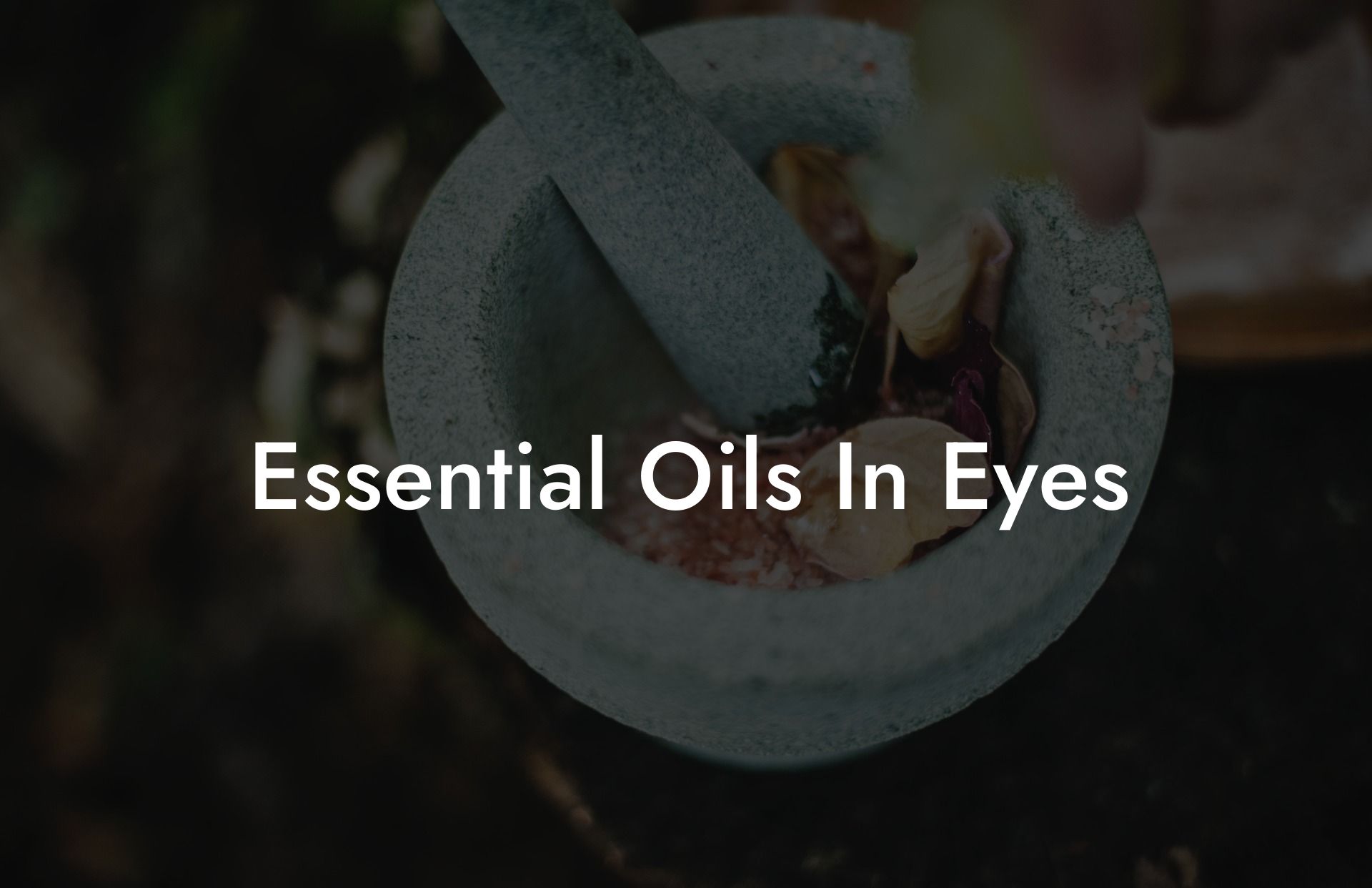We’ve all experienced it – that moment when you accidentally get something in your eye, causing discomfort and irritation. But what happens when it’s essential oil that ends up in your eye? The use of essential oils is growing in popularity, and with that comes an increased likelihood of accidents or mishaps, such as getting essential oils in your eyes. In this blog post, we will discuss the potential risks associated with essential oils in eyes, how to avoid such situations, and what steps to take if it does happen. Join us on this eye-opening journey as we delve into the world of essential oils and eye safety.
Table of Contents
Understanding the Risks of Essential Oils in Eyes
Essential oils are highly concentrated extracts from plants, which means that they can be quite potent and sometimes irritating to sensitive areas of the body, such as the eyes. Specific risks associated with getting essential oils in your eyes include:
- Corneal irritation or damage
- Redness and inflammation
- Pain or discomfort
- Temporary or permanent vision impairment
Proper Handling of Essential Oils
To minimize the risk of essential oils coming into contact with your eyes, it is crucial to handle them correctly and take necessary precautions. Here are some tips to help you safely use essential oils:
- Always wash your hands before and after using essential oils to avoid accidentally transferring them to your eyes
- Use a carrier oil, such as coconut or jojoba oil, to dilute essential oils before applying them to your skin
- Avoid touching your face or eyes when working with essential oils
- Keep essential oils out of reach of children, who may be more likely to accidentally get them in their eyes
- Store essential oils in dark, glass bottles to protect them from light and keep them in a cool, dry place
What to Do if You Get Essential Oils in Your Eyes
Despite taking precautions, accidents can still happen. If essential oil comes into contact with your eyes, follow these steps to minimize discomfort and potential damage:
- Do not rub your eyes, as this can worsen the irritation and spread the oil
- Flush your eye with a steady stream of water or saline solution for at least 15 minutes
- If you have contact lenses, remove them as soon as possible after flushing your eye
- Once you’ve thoroughly flushed your eye, apply a cold compress to help reduce pain and swelling
- Monitor your symptoms and seek professional medical advice if your discomfort persists or worsens
Essential Oils In Eyes Example:
Imagine you have just finished applying a calming lavender essential oil blend to your wrists and neck, hoping to unwind after a long day. You inadvertently rub your eye, immediately realizing that some of the oil has transferred onto your fingers, causing an intense burning sensation. Following the steps outlined previously, you quickly head to the sink and begin flushing your eye with water, remembering not to rub the affected area. After flushing your eye for 15 minutes, you cautiously remove your contact lens and apply a cold compress for relief. Your symptoms improve, and a lesson has been learned about the importance of handling essential oils with care.
Now that you understand the potential risks associated with essential oils in eyes and the steps to take if it does happen, you can continue to enjoy the many benefits of using essential oils while ensuring your safety. We hope you’ve found this guide informative and eye-opening. Don’t forget to share it with fellow essential oil enthusiasts, and be sure to explore our other guides on Oshu Oils for more tips and insights. Additionally, browse our range of artisan essential earth oils carefully crafted by our team of aromacologists to enhance your wellbeing and bring balance to your modern lifestyle.





















